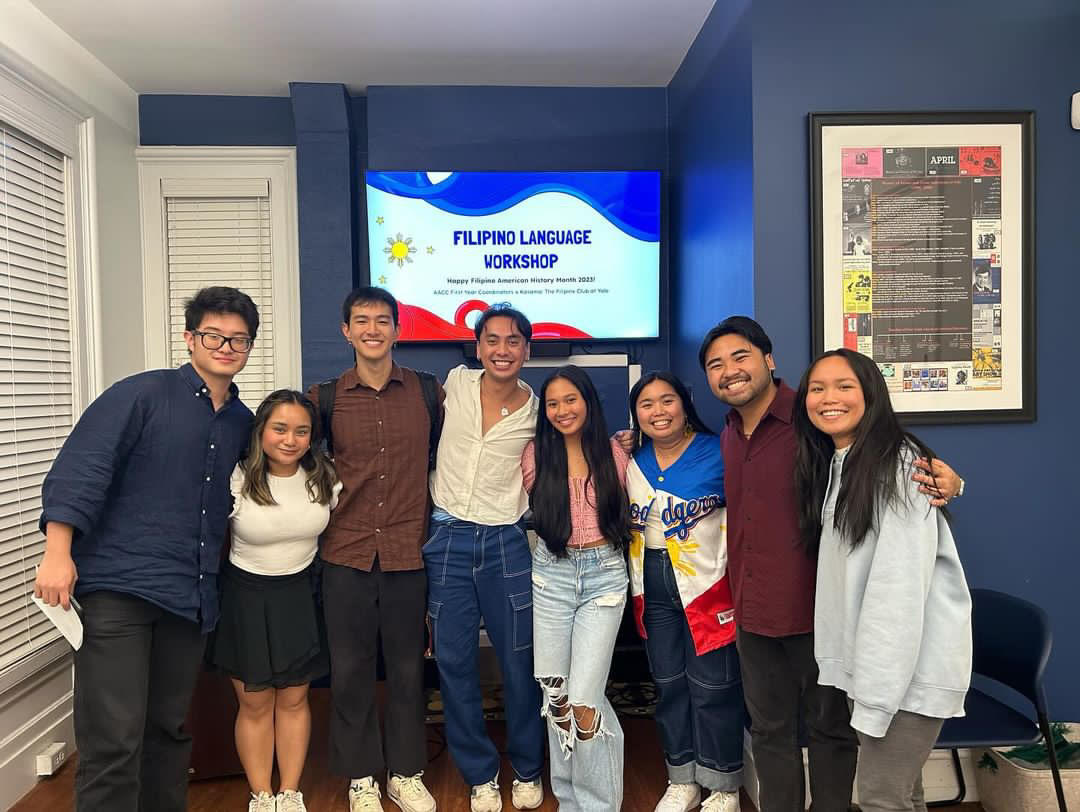Students’ call for Tagalog language courses moves further toward implementation
Yale’s Filipinx club, KASAMA, advanced its Tagalog initiative to create credit-bearing Tagalog courses, and they are now in the final steps of gaining approval.

Samantha Fajardo, Contributing Photographer
Tagalog courses may be introduced to Yale as early as the next academic year.
KASAMA, Yale’s Filipinx club, whose name is translated from the Tagalog word meaning “together,” has advanced a proposal to create a credit-bearing Tagalog course. The initiative followed a survey of enrollment interest, submission of petitions and an open letter addressed to University President Peter Salovey and other administrators. The letter, published in the spring and supported by the Yale College Council, called on Yale to officially create credit-bearing Tagalog courses with the opportunity to pursue Tagalog as a Certificate in Advanced Language Study.
After Harvard University announced that they will offer their first Tagalog language course, members of KASAMA expressed frustrations over the absence of such a course at Yale.
“I think a big part of [attending college] is being able to honor your cultural identity,” said Janina Gbenoba ’27, a KASAMA board member. “So, it hurts to not know the Filipino language already, and it hurts even more to come into a world renowned institution and find out that they don’t offer Tagalog.”
Tagalog is one of over 180 Filipino languages and is the base language in the Philippines. Tagalog is also the fourth most spoken language in the United States.
According to KASAMA leaders, the Tagalog initiative was approved by the faculty language committee and is now waiting for official approval. The next steps would include posting job listings for a full time Tagalog instructor. Members of KASAMA also hope that the official introduction of Tagalog as a credit-bearing course can pave the way for inclusion of more Filipino studies and language courses.
Currently, students can participate in the Directed Independent Language Study program where students can work with a language partner to learn Tagalog. However, students expressed frustrations with DILS program.
“I think I took the max semesters [of the DILS program], but I don’t think I improved at all,” said Pia Gorme ’23.
Students expressed to the News their frustrations with how “immigrant languages” are often suppressed in the American education system where these languages are often lost because of a colonial mentality and inferiority to other cultures.
Some mentioned Yale’s contributions to America’s history of suppressing Filipinos and their culture when Yale joined the movement of the U.S.’ sending teachers to the Philippines during its occupation to educate the “effeminate and childlike” Filipinos.
“Yale needs to continue to be held accountable to a lot of those colonial legacies,” Marissa Halagao ’27, another KASAMA board member, told the News. “Yale already drips with the blood of so many oppressed peoples.”
Halagao added that Tagalog, as well as other Filipino languages, are often not represented in higher education, which she cited as “disappointing” especially since Tagalog is the fourth most spoken language in the U.S.
Members of KASAMA have also been meeting with professor Erik Harms, chair of the Council on Southeast Asian Studies, to push for the Tagalog initiative. Harms helped to propose the petition to members of the language committee to gain approval to look for a full time Tagalog instructor.
In November, KASAMA and the Asian American Cultural Center hosted the Filipino Language Workshop where KASAMA members taught basic phrases in Tagalog and three other Filipino languages. Thirty-four students attended that workshop.
KASAMA’s petition to include Tagalog in Yale’s language curriculum was signed by more than 380 students and faculty. Both Lewis and Harms backed the petition.
Overall, KASAMA is hopeful for the creation of a Tagalog program, especially since there is a lot of student and faculty support for the initiative.
“Tagalog is a familial language; it is a way to connect and to share love and stories,” said Celene Bennett ’26, a KASAMA board member. “Accessing Tagalog at school would be beautiful, allowing me and my mom to communicate in the language of her parents. That’s really beautiful.”
KASAMA was founded in 1989.
Correction, June 5: This story has been updated with the correct name of the feature image photographer.







